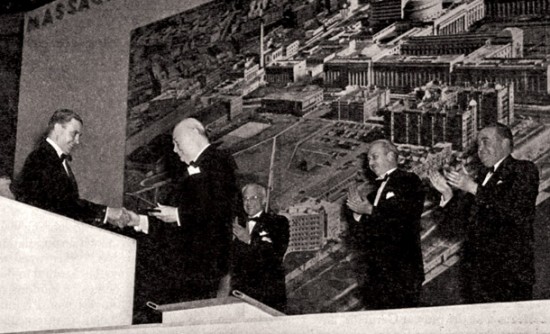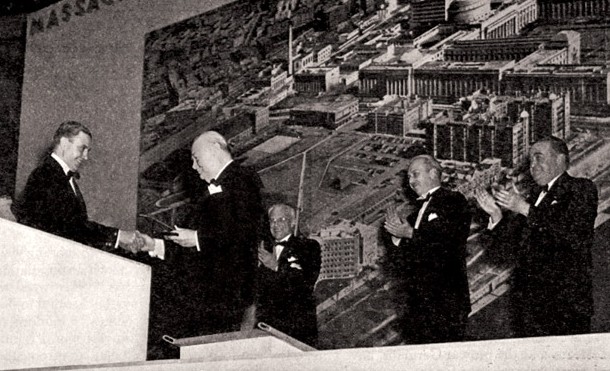Churchill’s Warning
In a 1949 address published in Technology Review and excerpted here, Winston Churchill said new technologies create problems even as they solve others.



The outstanding feature of the Twentieth Century has been the enormous expansion in the numbers who are given the opportunity to share in the larger and more varied life which in previous periods was reserved for the few and for the very few. This process must continue at an increasing rate. If we are to bring the broad masses of the people in every land to the table of abundance, it can only be by the tireless improvement of all our means of technical production, and by the diffusion in every form of education of an improved quality to scores of millions of men and women. Yea, even in this darkling hour I have faith that this process will go on.
For us in Britain, the Nineteenth Century ended amid the glories of the Victorian era, and we entered upon the dawn of the Twentieth in high hope for our country, our Empire, and the world. In 1900 a sense of moving hopefully forward to brighter, broader, easier days predominated . . . We took it almost for granted that science would confer continual boons and blessings upon us, would give us better meals, better garments, and better dwellings for less trouble, and thus steadily shorten the hours of labour and leave more time for play and culture.
Science presently placed novel and dangerous facilities in the hands of the most powerful countries. Humanity was informed that it could make machines that would fly through the air and vessels which could swim beneath the surface of the seas. Certainly it was a marvelous and romantic event . . . This vast expansion was unhappily not accompanied by any noticeable advance in the stature of man, either in his mental faculties, or his moral character. His brain got no better, but it buzzed the more . . . Our need was to discipline an array of gigantic and turbulent facts. To this task we have certainly so far proved unequal . . .
Scientists should never underrate the deep-seated qualities of human nature and how, repressed in one direction, they will certainly break out in another. The genus homo—if I may display my Latin—is a tough creature who has traveled here by a very long road. His nature has been shaped and his virtues ingrained by many millions of years of struggle, fear, and pain, and his spirit has, from the earliest dawn of history, shown itself upon occasion capable of mounting to the sublime, far above material conditions or mortal terrors.